Description
ABSTRACT
Judicial Response to the Challenges of Maternity Harassment in Employment Relations in Nigeria
Israel N. Eme Worugji* & Nheoma Eme Worugji**
ABSTRACT
This contribution explores the judicial response to the challenges of maternity harassment in the workplace in Nigeria. The aim is to expose the extent to which the right to work and job security of the pregnant and nursing mother is protected, considering the global drive to protect the maternity rights of the working mother and the drive against maternity harassment. The work reviewed the court decisions in some cases involving loss of work on the grounds of pregnancy, where the Court declared the termination of the employment on such grounds wrongful and unconstitutional and awarded damages. It commends the judicial strides of awarding substantial monetary damages in dealing with the issues of maternity harassment in the cases considered in this work. However, it posits that the judicial responses, short of reinstatement, do not guarantee income and job security to pregnant women because of the sustained loss of employment in such cases. It, therefore, calls for sustainable legislative and policy intervention to guarantee reinstatement to work in such cases. The inclusion of reinstatement as a remedy in cases of unfair dismissal will bring the law to par with international standards and best practices and nip the emerging maternity harassment in the workplace on the head before it becomes an ‘Adder’ (venomous snake), terrorising pregnant and nursing women in the workplace.
Keywords: Labour law, maternity harassment, judicial responses, employment, discrimination.
INTRODUCTION
Besides the general issue of discrimination against women in the labour market, some new challenges in the form of maternity harassment at work have emerged.1 Women’s freedom to marry while working is frequently constrained. Even if they are permitted to marry, they are not allowed to become pregnant right away. If they become pregnant, they are not eligible for maternity leave or to receive any benefits or protection during that time.2 Despite the widespread ban on discrimination in general and in employment relations in particular, some women are fired from their jobs or forced to resign because of marriage and pregnancy.3
*LLM (Essex), PhD (Ibadan), BL, Professor of Law, Department of Business Law, Rivers State University, Nkpolu-Oroworukwo, Port Harcourt, Nigeria.
** LLB (Calabar), LLM (Cape Town), BL, Lecturer, Department of Jurisprudence & International Law, Faculty of Law, Rivers State University, Nkpolu-Oroworukwo, Port Harcourt, Nigeria.
- The International Labour Organization (ILO)107 Section 2018: Report V (1) Ending Violence and Harassment against Women and Men in the World of Work (International Labour Office 2018) 5-16. ILO Violence and Harassment Convention 2019 (C190) and Recommendation No.206.
- The military and Para-military organizations are good examples in this regard. The argument is that their work is one that always demands emotional stability and physical agility-high level of physical fitness.
- Suzan Lewis and others, Maternity Protection in SMEs: An international Review (International Labour Office, 2014) 1-7; International Labour Organization (ILO), Maternity and Paternity at Work, Law, and Practice across the World (International Labour Office, 2014); Adrienne Cruz, Good Practices and Challenges on the Maternity Protection Convention, 2000 (No. 183) and the Workers with Family Responsibilities Convention, 1981 (No. 156): AComparative Study (International Labour Office, 2012).

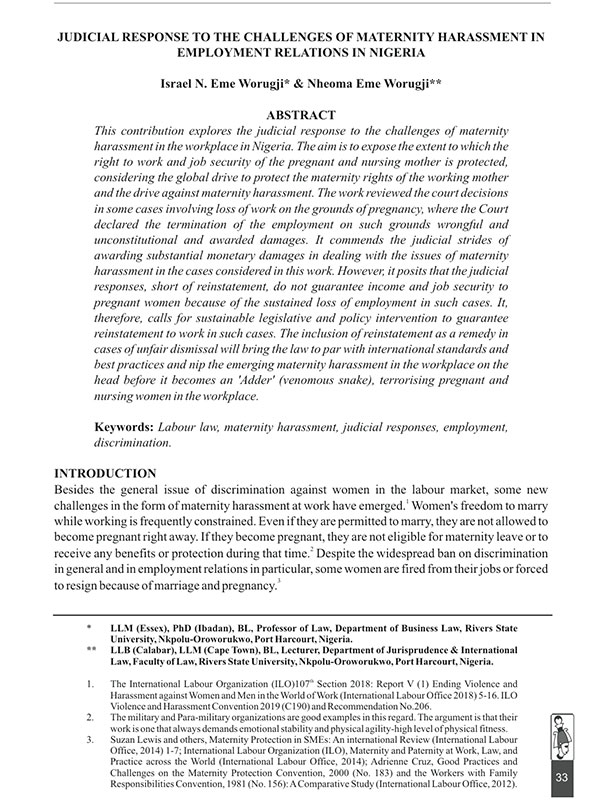
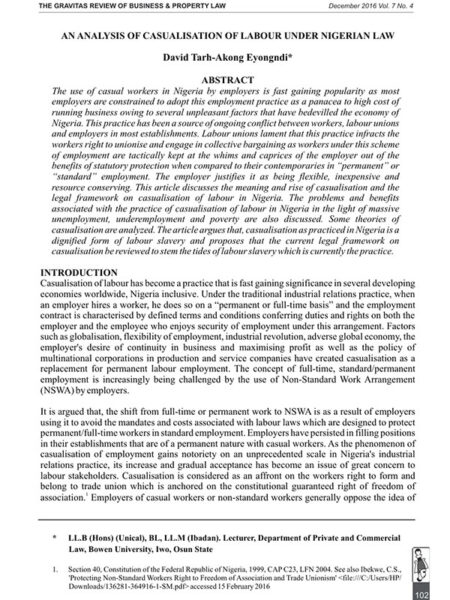
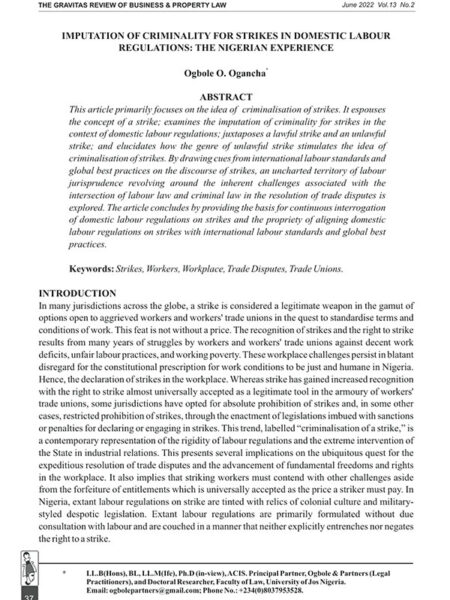
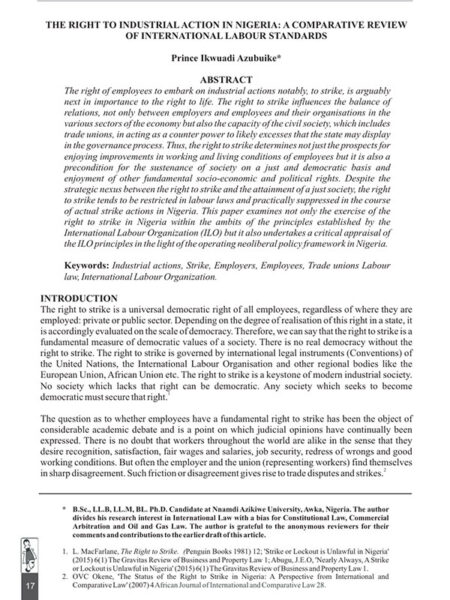
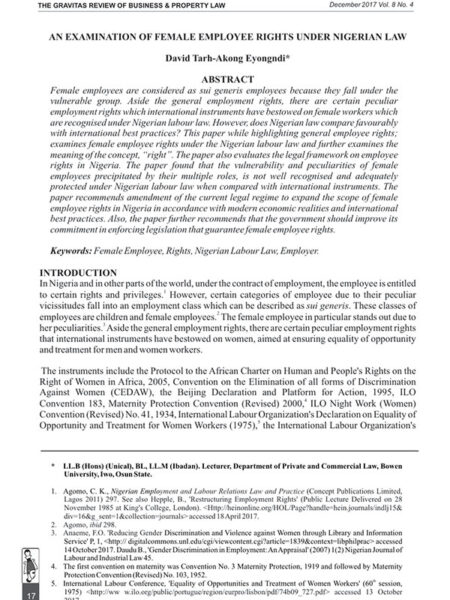


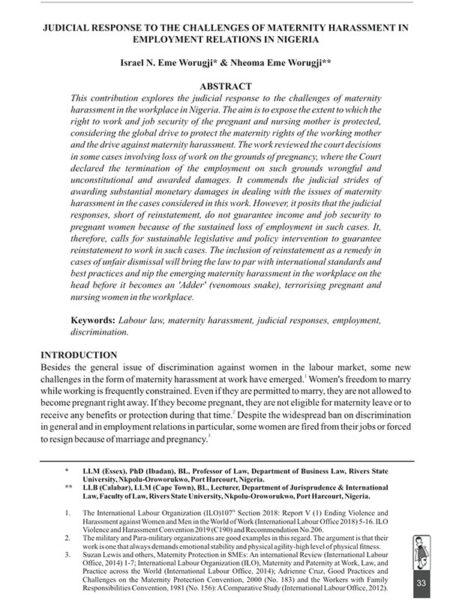
Reviews
There are no reviews yet.